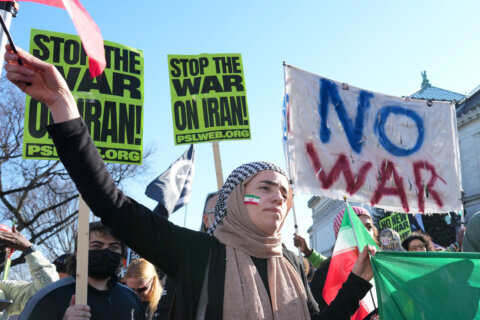
Although still not finalized, public health guidance is shifting toward wearing non-medical masks in public, even for people with no symptoms, to try to slow the spread of coronavirus — despite the existence of anti-mask laws in Virginia and D.C.
However, careful reading of the laws, and statements by public officials, shows they wouldn’t affect a person’s ability to wear a mask during the coronavirus pandemic.
While medical-grade masks are in short supply for medical providers and first responders, the new guidance would suggest T-shirts or bandannas be used to cover the nose and mouth when in public and while shopping at the grocery store or pharmacy.
Virginia’s law, at least in part, was driven because of the Ku Klux Klan: “It shall be unlawful for any person over 16 years of age to, with the intent to conceal his identity, wear any mask, hood or other device,” in public. The law is a Class 6 felony, with punishment from one to five years in prison.
However, since the intent of wearing a makeshift mask is to prevent transmission of disease, rather than conceal an identity, it would not be enforceable in Virginia.
-
- Sign up for news alerts from WTOP
- Coronavirus: Va. receives White House considers broader use of face masks
- ‘Surreal’: NY funeral homes struggle as virus deaths surge
- DC, Maryland and Virginia face medical supply shortfall
- DC-area fire and police departments make coronavirus contingency plans as first responders get sick
The law in the D.C., was passed, in part to counter protesters “engaged in conduct prohibited by civil or criminal law, with the intent of avoiding identification.”
Since wearing a mask to prevent transmission of the coronavirus doesn’t involve intent to commit an illegal act, “It is not illegal to wear a mask in Washington, DC to protect yourself from COVID-19 or any other communicable disease,” police chief Peter Newsham told WTOP.
In Maryland, it does not appear that there is a state law on the books against wearing masks, although Prince George’s County’s Code of Ordinances prohibits it if worn to threaten, with a maximum penalty of 180 days in jail and a fine of $1,000.








